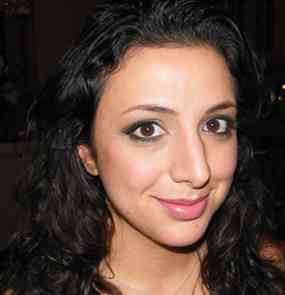Susan Youssef’s film Habibi played at the Human Rights Watch Film Festival.
Women and Hollywood: In the press notes you say your film was funded 100% through grants. Can you give advice to other filmmakers of your experience in finding funds for the film?
Susan Youssef: Some filmmakers find it very hard to write grant applications. Some filmmakers find it very uncomfortable to ask others for donations. Some filmmakers find it impossible to find investors. I can go on. I believe that the stronger the filmmaker’s fire is burning to make the film — the more the filmmaker will find a way. I did go into debt in the early years of making my work. And I would not advocate for that. I do believe that often filmmakers are forced to put their own earnings as seed money for their work. I have done that and I continue to do that, and there is nothing wrong with that. I will, however, try to never go into debt again for a film.
WaH: What was it like making the first film in Gaza in over 15 years?
SY: I fell in love in Gaza and the idea was just handed to me: I saw children acting out Majnun Layla in a gymnasium in Khan Younis. I found the poems at the New York Public Library. I went to Gaza in 2005 to shoot sample scenes. People were very willing to support the production. Across political positions they were really excited.
WaH: Please talk about the title- what does Habibi mean?
SY: It means Darling. The full Arabic title is HABIBI RASAK KHARBAN, which means ‘Darling, Something’s Wrong With Your Head.’ Kharban is a really common word used in Gaza and I wanted to capture both the Gazan dialect and the theme of ‘Majnun Layla,’ which we re-tell in this film. ‘Majnun Layla’ is a 7th century romance, from the Nejd Desert (present-day), about a poet who goes mad from his love for Layla.
WaH: You say that Habibi is a film that challenges prejudice and works towards universal human rights. Can you elaborate further on that?
SY: Habibi provides a depiction of an evolving Palestinian society — focusing on a love affair and a poetic tradition while situating the story in the reality of Palestinian resistance. By bringing to film the poetic parable, I state that at the basis of Arab society is a desire for an expression of love — not violence. Thus, Habibi is both a reinterpretation of the parable and an exploration of the relationship between politics and Islam at a particular historical moment: the Second Intifada. I align my visual and structural plans for the project with the focus of giving the audience the experience of being Gazan, via a love story in a contemporary, yet traditional Muslim society. Habibi’s protagonists struggle with the longing for romantic, divine love.
My specific human rights commitment was the actual act of making the film. Even if I could not re-enter Gaza, I was determined to tell the story — a universally identifiable love story that humanizes Gazans. I also made the film with a majority Palestinian crew and a completely Palestinian cast. This had never been done before on a Palestinian feature and was part of my commitment.
WaH: What was the biggest challenge towards getting this film made?
SY: Despite having prepped and shot some of the film in 2005, I could not complete the film in Gaza. In 2007, I wasn’t allowed back into Gaza. I waited in the West Bank not knowing what I was going to do. But Palestinians are very innovative, and very hospitable and helpful. I met people from Gaza who were living in the West Bank — they suggested I try to fake Gaza there. But I delayed. Part of the reason it took me until 2009 to shoot was my belief that I’d get back into Gaza. When we filmed in the West Bank it was so painful, because there was a limitation on what we could film. How could I fake Gaza while shooting the West Bank landscape, with mountains in the distance? We couldn’t have wide shots — but that worked to create the suffocating feeling of Gaza. We had many other obstacles — I’m deeply grateful that I was able to find a way to tell the story.
WaH: Have you shown the film in Gaza or Israel? What was the reception like?
SY: The film has shown in Nazareth, Jerusalem, Bethlehem and Ramallah. The reception was absolutely embracing. We are working at planning a Gaza screening at the moment and several Gazans have seen the film at these screenings and others — and have loved the film. Specifically, Gazan women have approached me with complete ardor for the film. I am committed to making the Gaza screening happen.
WaH: What advice do you have for other female directors?
SY: I believe there is enough room in the world for all the talent if you keep hanging in there long enough. There is a lot of deprivation mindset amongst filmmakers and I just don’t think it’s true. There is enough out there for all of us.
WaH: What are you working on next?
SY: I am making MARJOUN AND THE FLYING HEADSCARF, which is a fiction feature by the same name of my short that went to Sundance in 2006. It’s my answer to Ghost World.







